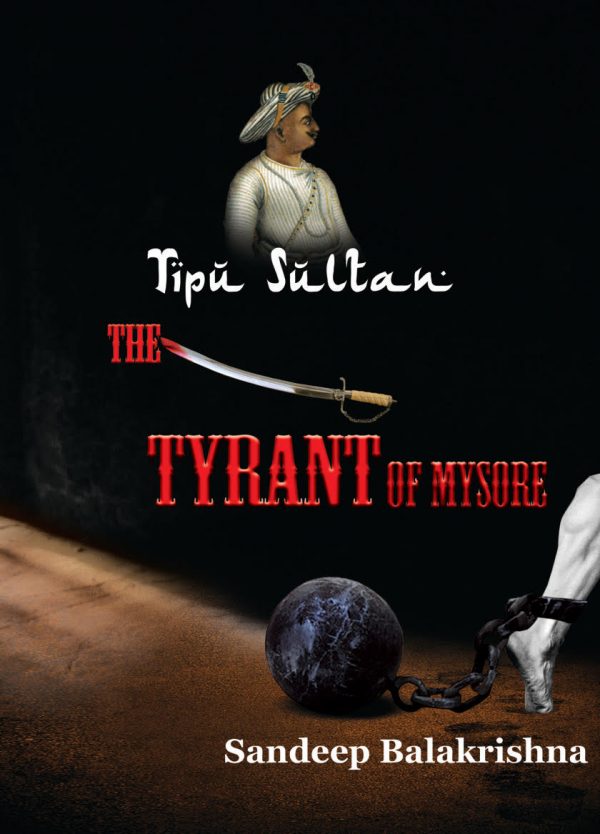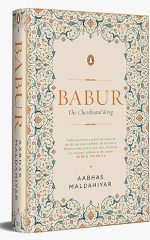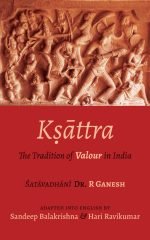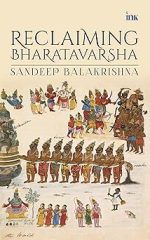Description
Foreword by Shatavadhani Dr. R. Ganesh
About the Book :
Tipu Sultan is widely known as the Tiger of Mysore. Indeed, the image of Tipu battling a tiger barehanded crosses the mind whenever his name is mentioned. But is this the truth? Was Tipu Sultan truly the warrior as he has been portrayed? What exactly is his record of fighting the British? Was he really a freedom fighter as is widely claimed?
Sandeep Balakrishna in this well-researched book, explores both the myths and the truth surrounding Tipu Sultan. A must-read for those who wish to learn the true story of Tipu Sultan. The history of Tipu Sultan stands as a glaring instance of a distorted historical narrative.
ISBN : 978-8192788463; Pages 224 ; Rare Publications
About the Author :
Sandeep Balakrishna has been an information technology professional for over 15 years. He is a regular columnist at the Pioneer, Kannada Prabha and on various online media like SIFY and Centre Right India and has been running the Rediscovery of India blog for about 14 years. He is also a translator, and his upcoming English translation of Dr. S.L. Bhyrappa’s bestselling novel will soon be available in bookstores.
Other Books written / translated by Sandeep Balakrishna on HindueShop are HERE








Subramanyam – :
This book is a well researched piece on the life and times of Tipu Sultan. The author gives us enough background about the Mysore Kingdom, the Wodeyar kings who ruled it, the political picture of South India and the relationship of the Wodeyar kings with the powers of their times. The Maratha’s , the Nizams of Hyderabad , the British and their intentions in the matters of South India were explained in an informative manner.
The author then explains the rise of Hyder Ali. Hyder Ali, who is Tipu’s father who was a normal mercenary soldier once used his intelligence and the opportunities very well and ended up as the King of Mysore. His rise , his military prowess and fearless leadership were well illustrated by the author. With this back drop we are introduced to Tipu and we get a glimpse of him when he is a young man. The author brings out interesting episodes as to make us understand what sort of person Tipu was and if his father indeed trusted him.
From there, we see the circumstances under which this young man becomes the king and how Tipu took charge of the affairs in the palace. His religious intolerance, his complete mis-handling of the economy, his lack of trustworthiness, his Islamic fanaticism, his ignorance on what was happening in the world, his madness to control and change India into an Islamic state, the way he ransacked temples, his reign of tyrrany that isolated him from all the kings of south India (at that time) and the double games he tried to play with the French, the British and the Islamic rulers outside India was very well brought out in this book . The author provides us with evidence for every claim he makes.
As the world knows, Tipu wrote his own letters. These letters serve as huge testimony to the sort of person Tipu was, the author brings a lot of letters to light. Here is one of them.
Tipu writes to Burduz Zamaun Khan on 19 January 1790: “Don’t you know I have achieved a great victory recently in Malabar and over four lakh Hindus were converted to Islam?”, and to Syed Abdul Dulai on 18 January 1790: “With the grace of Prophet Muhammad and Allah, almost all Hindus in Calicut are now converted to Islam. Only a few are still not converted on the borders of Cochin State. I am determined to convert them also very soon. I consider this as Jehad to achieve that object.”
The author Sandeep Balakrishna then goes on to expose Tipu’s games with the nation. Tipu is glorified because he fought the British. However, the question is why did he fight them? Did he fight for his own terrtorial gains or did he fight to send the Europeans away from the country? The author gives a lot proof as to how Tipu had no qualms with French controlling India and how he invited a lot of Muslim rulers to come and attack India. Again the author reproduces the letters Tipu wrote to the French, the Caliph in Turkey, to the rulers of Afghanistan and Persia. Can this be called patriotism? The author again does an excellent job of exposing all these misdeeds.
In the final lap the author takes us to the ways in which Tipu lost the Third Anglo-Carnatic war and what he did after that. How he, with his faith in Astrology believed that he would become a Padushah and gave donations to some temples. How he kept judging things erroneously, how all the rulers of south India, both Muslims and non-Muslims deserted him and how Tipu sent invite after invite to the French to come and attack the British in India, how the British made their proposals and the war that killed Tipu . It would be interesting to note that the Nawab of Arcot, Nizam of Hyderabad and many other Muslim rulers despised this man and his deeds. The very fact that the then Caliph also rejected his proposals tell us how this man was put at bay by the Muslim rulers of his time.
I loved author’s research and the guts to write a book of this sort. The references the author provides and the way he presents facts are good. At the end of the 200 page book I felt as if the author concluded it a little too fast and little too early, I felt he could have written more about this topic.
My Recommendation
This is a must read for everyone who wants to understand the true nature of Tipu.